#Internal Auditor Training
Text
Enhancing Workplace Safety Through ISO 45001: Case Studies and Success Stories from the UAE

Workplace safety is a paramount concern for organizations across the globe, and the United Arab Emirates (UAE) is no exception. In an environment where industries are rapidly growing and evolving, it’s essential to establish robust occupational health and safety management systems. ISO 45001 is an internationally recognized standard designed to help organizations improve workplace safety and reduce risks. In this blog post, we’ll delve into the importance of ISO 45001 Lead Auditor Training in UAE.
#Iso 45001 In Uae#Internal Auditor Training#Iso 45001 Training In Uae#Iso 45001 Internal Auditor#ISO 45001 Lead Auditor Training in UAE
0 notes
Text
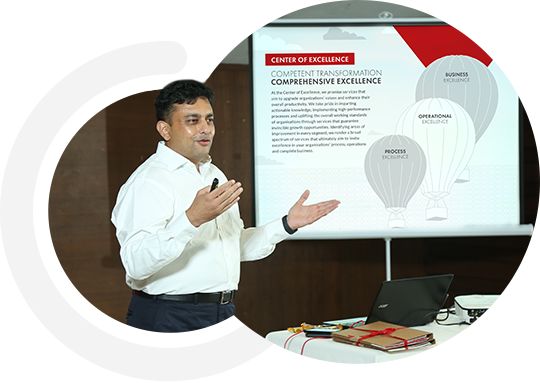
1 note
·
View note
Link
This Information Security management system Auditor/Lead Auditor course has been designed and developed to provide students with the knowledge and skills required to perform audits (first-party, second, and third-party) of Information Security Management Systems against ISO 27001:2013, in accordance with ISO 19011 2018 and ISO 17021-1:2015, as applicable. This course is meeting the requirements for individuals seeking registration as an Auditor or Load Auditor for IRCA.
#Lead Auditor Training#ISO 27001:2013#Information Security Management System#Internal Auditor Training#lead auditor#lead auditor course
0 notes
Text
ISO 9001:2015 Certified Internal Auditor Training
Our Internal Auditor Training courses for ISO Standards are designed to provide in depth knowledge and skills to create a framework for planning, conducting and reporting an effective internal audit. We provide Internal Auditor Training Courses for
4 notes
·
View notes
Text
ISO 17025 Internal Auditor Training in Morocco
ISO 17025 Internal Auditor Training
About ISO 17025 Internal Auditor Training
ISO 17025 Internal Auditor Training provides attendees with the skills and knowledge necessary to perform internal audits of quality management systems in accordance with ISO 17025. The course covers the requirements of ISO 17025, the audit process, and techniques for assessing compliance.
Importance
ISO 17025 is the international standard that specifies the requirements for a quality management system (QMS) when performing calibration and testing activities. A QMS that complies with ISO 17025 can provide confidence to customers and regulatory agencies that the laboratory’s results are accurate and reliable.
Internal auditing is an important part of a successful ISO 17025 QMS. An internal auditor is responsible for independently assessing the compliance of the laboratory’s QMS with the requirements of ISO 17025. The skills and knowledge acquired in an ISO 17025 Internal Auditor course can help attendees conduct effective and efficient audits that will help their laboratory achieve and maintain compliance with ISO 17025.
Benefits
Enhances your understanding of the requirements of ISO 17025
Provides you with the skills to conduct an internal audit of a laboratory against the requirements of ISO 17025
Helps you identify and assess compliance risks in your laboratory
Enables you to develop an action plan to address any deficiencies found during the internal audit
Enhances your ability to manage and improve laboratory quality
Helps you to fulfill your role as an internal auditor of a laboratory against the requirements of ISO 17025
Who Can Attend?
An ISO 17025 Internal Auditor Course is designed for quality management system auditors, laboratory managers, and personnel who are responsible for the development and implementation of a QMS in accordance with ISO 17025. This course is also beneficial for anyone who wants to gain a better understanding of the requirements of ISO 17025 and the audit process.
Pre-requisites
There are no mandatory pre-requisites for attending an ISO 17025 internal auditor training course. However, it is recommended that attendees have a basic understanding of quality management systems and the audit process.
Procedure to Join a Training Program
The first step is to find a training provider that offers an ISO 17025 Internal Auditor Training course. Once you have found a training provider, contact them to find out more information about the course and schedule a date for attendance. The next step is to attend the course and successfully pass the examination at the end. Upon successful completion of the examination, you will be certified as an ISO 17025 Internal Auditor.
Conclusion
An ISO 17025 Internal Auditor Training course is an important investment for any laboratory that wants to ensure compliance with the requirements of ISO 17025. The skills and knowledge acquired in this course can help attendees conduct effective and efficient audits that will help their laboratory achieve and maintain compliance with ISO 17025.
ISO 17025 Internal Auditor Training in Morocco
0 notes
Text
Businesses everywhere are focusing on providing high-quality IT services while upholding efficiency, dependability, and customer happiness as they become more customer-centric. Many businesses are using ISO 20000, the international standard for IT service management, to meet these goals. Getting ISO 20000 certified can be a smart move if you're an auditor seeking a new professional opportunity. The assessment of an organization's ITSM processes to make sure they adhere to the standard will be your job as an ISO 20000 auditor.
#iso 20000#iso 20000 certification#iso 20000 auditor training#iso 20000 internal auditor training#iso 20000 auditor training course#iso 20000 internal auditor training course
0 notes
Text
Elevate Your Expertise: Unveiling the Power of ISO 45001:2018 Internal Auditor Training with IndustryForum
In the dynamic landscape of modern industry, ensuring the safety and well-being of employees stands as a paramount priority. Embracing global standards like ISO 45001:2018 not only exemplifies commitment to occupational health and safety but also fosters a culture of continual improvement within organizations.
At the heart of this standard lies the need for proficient internal auditors who can navigate its intricacies with finesse and precision. Here, we unravel the transformative journey offered by IndustryForum's ISO 45001:2018 Internal Auditor Programme, a beacon of excellence in the realm of occupational health and safety training.

Gone are the days when compliance was merely a checkbox on a form. Today, organizations recognize the intrinsic value of fostering a culture of safety that transcends regulations. ISO 45001:2018 serves as a compass, guiding enterprises towards sustainable practices that prioritize the well-being of their most valuable asset – their employees. However, realizing the full potential of this standard requires more than just implementation; it necessitates a deep understanding and mastery of its principles. This is where IndustryForum steps in as a trusted partner on the journey towards excellence.
What sets IndustryForum apart is not just its commitment to delivering training but its dedication to empowering individuals with practical skills and knowledge that transcend the classroom. The ISO 45001:2018 Internal Auditor Programme offered by IndustryForum is not merely a course; it's a transformative experience designed to equip participants with the tools they need to drive meaningful change within their organizations.
One of the hallmarks of IndustryForum's approach is its emphasis on experiential learning. Through a blend of interactive workshops, real-world case studies, and hands-on exercises, participants are not only familiarized with the requirements of ISO 45001:2018 but also provided with the opportunity to apply them in simulated audit scenarios. This immersive learning experience not only enhances retention but also cultivates the practical skills necessary for effective auditing in diverse organizational settings.
Moreover, IndustryForum's commitment to excellence extends beyond the classroom. Participants of the ISO 45001:2018 Internal Auditor Programme gain access to a global network of industry experts and peers, fostering collaboration and knowledge exchange long after the training concludes. This invaluable resource serves as a support system for auditors as they navigate the complexities of implementing and maintaining ISO 45001:2018 within their organizations.
In an era where trust is paramount, IndustryForum stands as a beacon of reliability and integrity in the realm of occupational health and safety training. With a track record of excellence and a commitment to empowering individuals with the knowledge and skills they need to drive meaningful change, IndustryForum's ISO 45001:2018 Internal Auditor Programme is the definitive choice for organizations seeking to elevate their safety standards.
In conclusion, seize the opportunity to elevate your expertise and make a tangible difference within your organization by enrolling in IndustryForum's ISO 45001:2018 Internal Auditor Programme today. Take the first step towards becoming a catalyst for positive change and join a community of industry leaders committed to shaping a safer and more sustainable future. Make your reservation today and embark on a journey towards excellence with IndustryForum.
For more info :-
ISO 45001:2018 Internal Auditor Training
Aerospace manufacturing consultancy
0 notes
Text
Continuous Improvement through ISO 45001 Internal Auditor Training: Enhancing Safety Performance in UAE Organizations
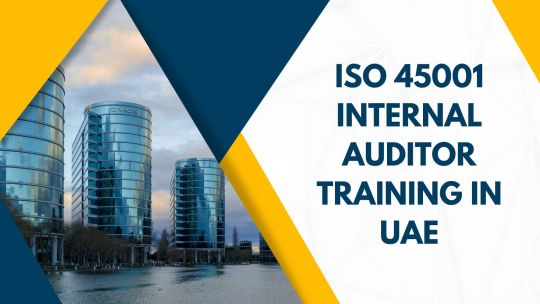
ISO 45001 Internal Auditor Training in UAE is instrumental in enhancing workplace safety and organizational performance in the UAE. By equipping internal auditors with the necessary knowledge, skills, and techniques to assess and improve OHSMS effectiveness, organizations can mitigate risks, ensure compliance, and promote a culture of safety. Investing in ISO 45001 internal auditor training demonstrates a commitment to safeguarding the well-being of employees and reinforcing organizational resilience in the face of occupational hazards and risks.
#ISO 45001 Internal Auditor Training in UAE#ISO 45001#ISO 45001 Training#ISO 45001 in Dubai#ISO 45001 in UAE
0 notes
Text
Thinking about Edward Elric as the Amestrian Military's specialest little unfireable boy
State alchemists can be fired for underperforming. We know this up front from the likes of Shou Tucker. And this makes a ton of sense from the homunculi's standpoint since the state alchemists are sacrifice candidates, and the homunculi would want to cull the weakest candidates and focus only on cultivating the strongest ones who stand the best chance of opening the portal.
........Then there's Edward. Who's already opened the portal.
There's no need to cultivate him. No gamble taken on whether he's good enough to open the portal. He passed the final test already. Graduated 4 semesters early.
And as such, has a free pass to do Absolute Fuck All.
And I'm imagining how funny this is from like an outside perspective.
Some newish state alchemist who'd only ever read up on the stories of Edward Elric, ready and excited to start their career of being paid handsomely with endless freedom to research and travel and do anything they want in the pursuit of science... surprised and confused to find themselves put on probation their first month for things like "ignoring orders." Which is, as best they had thought, a famous Edward Elric pastime.
Roy showing a slight bit of stress about his yearly state alchemist report, and Ed just snorting and rolling his eyes at Roy because every year HE just hastily does his on the train ride over (canon in the manga, a travesty it was left out of the anime) and it gets rubber stamped. Ed not realizing that other alchemists' reports get genuinely scrutinized and torn apart while Ed is free to turn in whatever absolute bullshit he thinks of 36 hours ahead of time. One year his report was about whether alchemy could be done via dance (conclusion: no it can't) and no one cared. Roy WANTS to tell Ed there's some kind of unknown favoritism around Ed making him literally bullet-proof but Roy has no way to phrase this that doesn't sound like he's just in denial and mad at how good Ed's train-reports are.
Guy from the Internal Amestrian Affairs sector who's responsible for auditing other internal military personel for any suspicious activity hitting about 1 million red flags for Edward Elric, issuing a STRONG and URGENT recommendation to suspend the alchemist pending further investigation into things like "literal bunk-buddies with two members of the Xingese royalty (enemy nation)" and "spent $10,000,000 of his stipend on a librarian to make her re-copy (what he seemed to interpret as?) military records in some extremely transparent effort to unearth state secrets (it was a recipe book but he was literally asking her about state secrets)" and "literally has never once obeyed an order, ever, not even once in his career, and is on public record having said 'I do not care about the goals and protections of the Amestrian Military. I am in fact only pursuing my own interests several of which are diametrically opposed to the safety and well-being of the governing body of Amestris'"
The issued recommendation is intercepted before it even reaches its intended desk. President Bradley himself has taken issue with it and denies it before a single set of eyes has seen it. The President's veto stamp is a terrifying hammer, used rarely, and it is now sitting on the auditor's desk.
The auditor sleeps with one eye open from then on out.
#fma#fullmetal alchemist#fullmetal alchemist: brotherhood#fma:b#literally anything about the dynamic between edward and the amestrian government is so so so funny to me#im begging you to come pick up your alchemist he keeps committing treason#Roy: absolute perfect ass-kisser and career-man playing the part 24/7 to disguise his treasonous ambitions and still#not flying under the radar#Edward on his public Twitter: bored. might tear down the Amestrian government for fun.
21K notes
·
View notes
Text
How Would ISO 14001 Benefit Schools and Colleges?

The education sector plays a crucial role in shaping future generations, not just intellectually, but also environmentally. As climate concerns mount, schools and colleges face increasing pressure to reduce their ecological footprint. While many institutions have embraced sustainability initiatives, could implementing a structured framework like ISO 14001 take their efforts to the next level?
0 notes
Text
Driving Continuous Improvement through ISO 9001 Internal Audits in the UAE
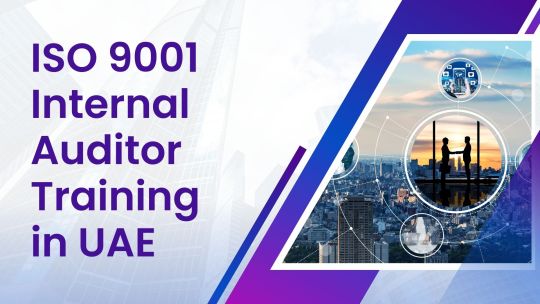
Achieving ISO 9001 certification is a significant milestone for organizations in the UAE, signaling their commitment to quality management practices. However, maintaining compliance and driving continuous improvement requires more than just initial implementation. In this blog post, we explore how internal audits play a crucial role in fostering continuous improvement within UAE organizations adhering to ISO 9001 standards.
#Iso 9001 In Uae#Internal Auditor Training#Iso 9001 Training In Uae#Iso 9001 Internal Auditor#ISO 9001 Internal Auditor Training in UAE
0 notes
Text
12 Helpful Tips For Doing 5s Training

Are you ready to make your workplace super organized and work smoother? Let's talk about 5S training, which comes from Japan and is like a magic wand for making things run better in your office or workspace. We'll dig into what 5S training is all about, why it's so awesome for your organization, and easy ways to get started and see real results.
What is 5S Training?
5S training is a structured approach to workplace organization aimed at optimizing efficiency, safety, and quality. The name "5S" derives from five Japanese words: Seiri (Sort), Seiton (Set in Order), Seiso (Shine), Seiketsu (Standardize), and Shitsuke (Sustain). Each "S" represents a step in the process of transforming a cluttered and disorganized workspace into a well-ordered and productive environment.
Why Use 5S in Your Organization?
Implementing 5S training in your organization offers a multitude of benefits:
Enhanced Efficiency: By eliminating waste and optimizing workflows, 5S reduces unnecessary steps and boosts productivity.
Improved Safety: A clean and organized workspace minimizes hazards and promotes a culture of safety among employees.
Higher Quality Output: Standardizing processes ensures consistency and accuracy, leading to better-quality products and services.
Cost Savings: Streamlining operations and reducing waste result in lower operational costs and increased profitability.
Employee Engagement: Involving employees in the 5S process fosters a sense of ownership, pride, and commitment to continuous improvement.
How to Implement 5S Training?
Follow these actionable steps to kickstart your 5S journey and unleash its transformative power in your organization:
Educate Your Team: Begin by educating your team about the principles and objectives of 5S training. Clearly communicate the importance of creating a clean, organized, and efficient workspace.
Establish Leadership Support: Gain buy-in from leadership to ensure commitment and support throughout the implementation process. Leaders should champion the 5S initiative and lead by example.
Conduct a Workplace Assessment: Assess the current state of your workplace to identify areas for improvement. Determine which areas require immediate attention and prioritize accordingly.
Sort (Seiri): Start the 5S process by sorting through all items in the workspace. Identify and remove unnecessary items, equipment, and materials that clutter the area and impede efficiency.
Set in Order (Seiton): Organize essential items and tools in a logical and ergonomic manner. Implement visual management techniques such as labeling, color-coding, and shadow boards to facilitate easy retrieval and storage.
Shine (Seiso): Establish a regular cleaning and maintenance schedule to ensure cleanliness and hygiene in the workplace. Encourage employees to take pride in their workspace and uphold high cleanliness standards.
Standardize (Seiketsu): Develop standardized procedures and workflows for maintaining the 5S principles. Document best practices, create checklists, and establish protocols to ensure consistency and accountability.
Sustain (Shitsuke): Foster a culture of continuous improvement and sustainability by providing ongoing training, reinforcement, and recognition. Encourage employees to take ownership of the 5S process and hold each other accountable.
Monitor and Measure Progress: Implement metrics and Key Performance Indicators (KPIs) to track the effectiveness of your 5S initiatives. Conduct regular audits and inspections to identify areas for improvement and celebrate successes.
Provide Training and Resources: Equip employees with the knowledge, skills, and resources they need to succeed in maintaining the 5S standards. Offer training workshops, educational materials, and access to tools and equipment.
Encourage Employee Involvement: Empower employees to actively participate in the 5S process by soliciting their input, feedback, and suggestions for improvement. Recognize and reward their contributions to fostering a culture of excellence.
Celebrate Achievements: Acknowledge and celebrate milestones, achievements, and successes along the 5S journey. Recognize individuals and teams for their dedication, innovation, and commitment to continuous improvement.
Are you looking to improve efficiency and organization in your workplace? 5S training might just be the solution you need. 5S is a systematic approach to workplace organization that originated in Japan. It's all about creating a clean, orderly, and efficient work environment. Whether you're new to 5S or looking to enhance your current practices, these 12 helpful tips will guide you through effective 5S training.
1. Understand the Basics of 5S:
Before diving into training, it's essential to grasp the fundamentals of 5S:
Sort: Remove unnecessary items from the workplace.
Set in Order: Arrange necessary items in a logical and efficient manner.
Shine: Keep the workplace clean and well-maintained.
Standardize: Establish standardized processes and procedures.
Sustain: Maintain 5S practices through ongoing training and accountability.
2. Start with Clear Objectives:
Define your goals for implementing 5S. Whether it's reducing waste, improving productivity, or enhancing safety, having clear objectives will keep your training focused and effective.
3. Involve Employees from the Start:
Engage employees in the 5S process from the beginning. Solicit their input, address concerns, and emphasize the benefits of 5S for both individuals and the organization as a whole.
4. Provide Comprehensive Training:
Offer thorough training on the principles of 5S, including hands-on demonstrations, workshops, and visual aids. Ensure that employees understand their roles and responsibilities in implementing 5S.
5. Emphasize the Importance of Sort:
Sorting is the first step of 5S and involves separating necessary items from unnecessary ones. Encourage employees to question the need for each item and eliminate anything that doesn't add value to the workplace.
6. Create Visual Management Systems:
Implement visual cues such as color-coded labels, floor markings, and signage to communicate 5S standards and procedures clearly. Visual management makes it easy for employees to maintain organization and cleanliness.
7. Foster a Culture of Continuous Improvement:
Emphasize that 5S is not a one-time event but an ongoing process of improvement. Encourage employees to identify areas for enhancement and implement changes collaboratively.
8. Establish Standard Operating Procedures (SOPs):
Develop standardized procedures for each step of the 5S process. SOPs ensure consistency and accountability, making it easier to sustain 5S practices over time.
9. Conduct Regular Audits and Inspections:
Schedule routine audits to assess compliance with 5S standards and identify areas for improvement. Involve employees in audits and provide feedback to reinforce positive behaviors.
10. Celebrate Successes and Recognize Contributions:
Acknowledge and reward individuals and teams for their efforts in implementing 5S. Celebrating successes fosters morale and reinforces the importance of 5S in the workplace.
11. Provide Ongoing Support and Resources:
Offer continued support, training, and resources to sustain 5S practices long-term. Address challenges promptly and provide solutions to overcome obstacles to implementation.
12. Lead by Example:
Leadership plays a crucial role in the success of 5S. Lead by example by adhering to 5S principles yourself and demonstrating commitment to continuous improvement.
How 4C can help your organization to Implement these ?
Implementing 5S practices in your organization can be greatly facilitated by the expertise of the 4C team. With a wealth of experience in delivering Total Quality Management solutions, our team offers cost-effective, efficient, and reliable strategies tailored to your organization's needs. Having served over 45+ clients and accumulated more than 1500+ training hours, along with successfully executing 60+ projects, we are well-positioned to guide your organization through the 5S implementation process. For personalized insights on how you can enhance organization and efficiency in your workplace with 5S practices, Contact us now.
#5S certification#5S consultant#5S implementation#5S training#5S internal auditor training#5S awareness training
1 note
·
View note
Text
#iso certificate online#iso 27001 audit#iso certification#iso standard#iso valorant#iso 9001#iso consulting services#iso 14001 certification#iso 14001 audit#iso 14001 internal auditor training#iso 14001 documents
0 notes
Text
ISO 9001 Quality Management training
Learn how to conduct ISO audits and prepare for the CQA exam with ASQ's auditing training courses. Find course listings and member discounts at ASQ.org
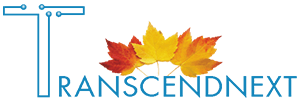
2 notes
·
View notes
Text
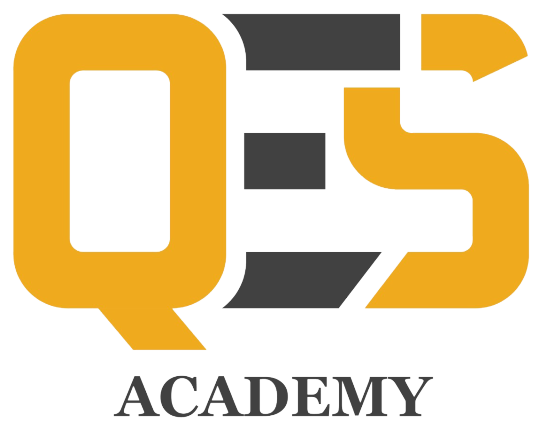
ISO 50001 Internal Auditor Training | EMS Internal Auditor Course
Discover EMS internal audit processes and techniques through this ISO 50001 Internal Auditor Training. Register now & get a 50% UTAP grant.
0 notes
Text
ISO 14001 Internal Auditor Training: Enhancing Environmental Management Systems
Introduction:
ISO 14001 is an internationally recognized standard for environmental management systems (EMS), providing a framework for organizations to establish and improve their environmental performance. One key element of maintaining ISO 14001 compliance is the internal audit process. This article explores the importance of ISO 14001 internal auditor training and outlines the key components of such training programs.
Understanding ISO 14001:
Overview of ISO 14001: ISO 14001 sets out the criteria for an environmental management system and helps organizations establish a systematic approach to environmental performance improvement. Compliance with this standard demonstrates an organization’s commitment to environmental responsibility.
Internal Auditing in ISO 14001: Internal audits play a vital role in evaluating the effectiveness of an organization’s EMS. Internal auditors are responsible for assessing whether the organization’s environmental management processes and activities align with ISO 14001 requirements.
Key Components of ISO 14001 Internal Auditor Training:
ISO 14001 Standard Overview: Training should begin with a comprehensive understanding of the ISO 14001 standard, including its structure, key clauses, and the intent behind each requirement. This foundational knowledge is essential for effective auditing.
Audit Principles and Techniques: Internal auditors need to grasp the principles and techniques of auditing, including planning and conducting audits, gathering evidence, and reporting findings. Emphasis should be placed on the importance of objectivity and impartiality.
Legal and Regulatory Compliance: A crucial aspect of ISO 14001 internal auditing is ensuring that an organization complies with applicable environmental laws and regulations. Training should cover the identification and assessment of legal requirements relevant to the organization’s activities.
Risk-Based Thinking: ISO 14001:2015 emphasizes a risk-based approach to environmental management. Internal auditors should be trained to identify and assess environmental risks and opportunities within the organization.
Communication Skills: Effective communication is fundamental to successful internal auditing. Training programs should focus on developing the skills needed to interview employees, communicate findings, and provide constructive feedback.
Documentation and Reporting: Internal auditors must be proficient in documenting audit activities and findings. Training should cover the preparation of audit reports, including non-conformities, opportunities for improvement, and recommendations.
Practical Training:
Mock Audits: Practical experience is crucial for internal auditors. Conducting mock audits within the organization allows auditors to apply their knowledge in a real-world context, identifying areas for improvement and fine-tuning their skills.
Role-Playing Exercises: Role-playing exercises simulate audit scenarios, enabling auditors to practice effective communication, conflict resolution, and decision-making in a controlled environment.
Conclusion:
ISO 14001 internal auditor training is a key element in ensuring the ongoing effectiveness of an organization’s environmental management system. By providing a solid understanding of the ISO 14001 standard, audit principles, and practical experience through exercises and simulations, organizations can empower internal auditors to contribute significantly to environmental sustainability and regulatory compliance.
0 notes